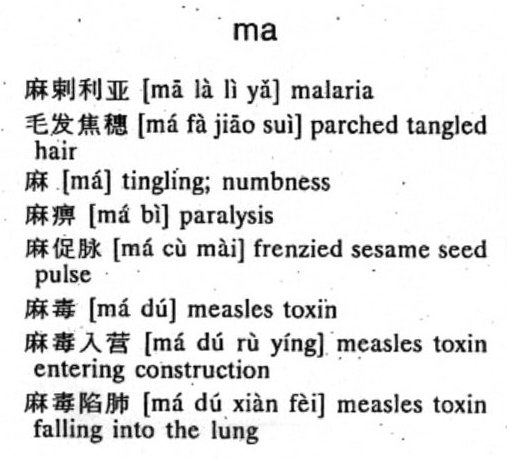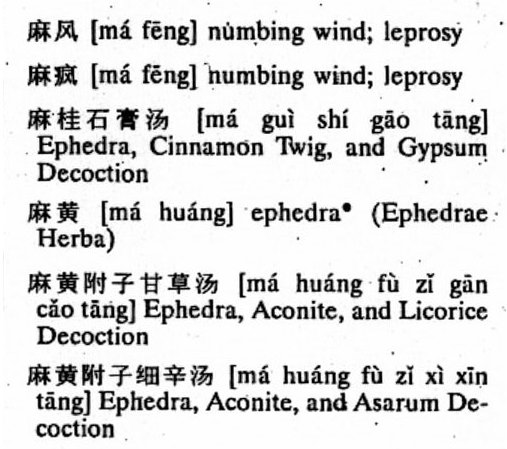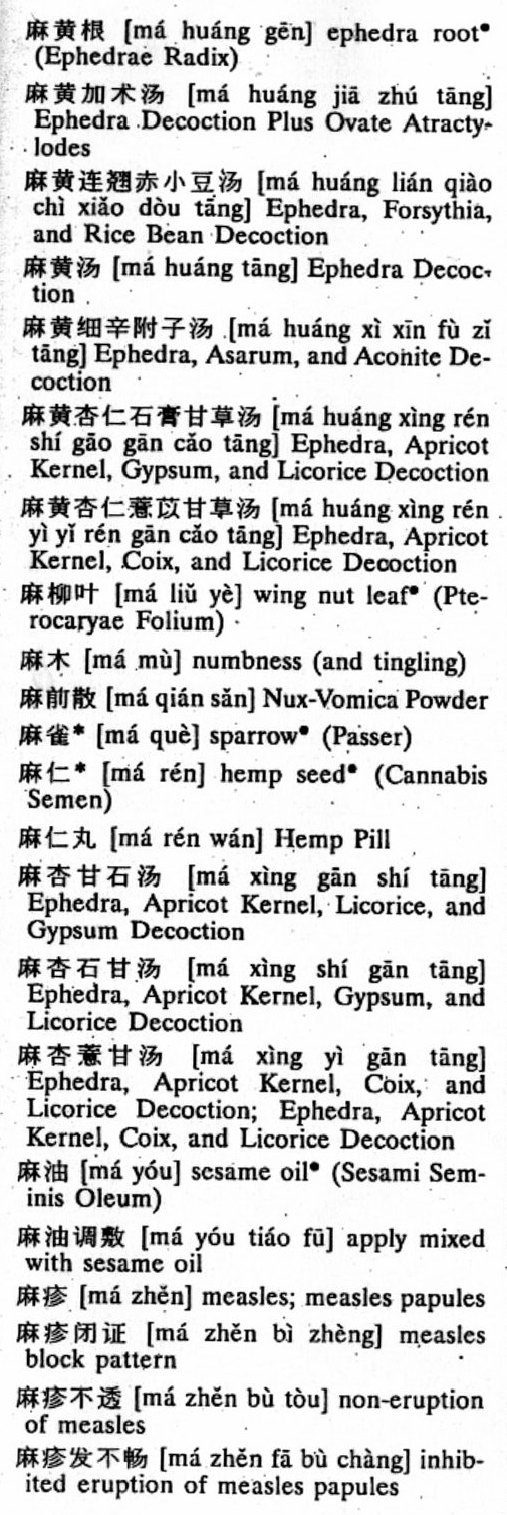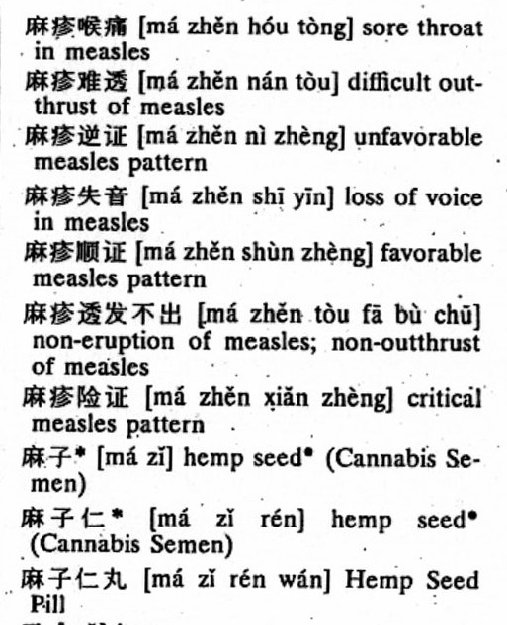|
CHINA |
|---|
Unlike the Indo-European language groups, Chinese languages have the general rule that each word consists solely of one syllable or individual sound. Meaning that words like, She, He, Eye, It, etc., can be translated directly into their Chinese counterparts, while a multi syllable word like, ‘antidisestablishmentarians’ (and actual English word), would sound extremely strange to the ears of a native chinese speaker. However, be that as it may, Chinese do have some very odd-ball concepts that the student of Medical Cannabis needs to be aware of.
-
1- First many Chinese words consist NOT of words of and-by-themselves but of compound-words. Words that when put together (in a certain order) have their own different meaning.
Examples: #1 The Chinese word/concept for POLIO is:

Examples: #2 The Chinese term for ‘General Anesthetize’ is:

2- Next Just like in English, we have the problem of multiple words, which (in essence) means the same thing. For example according to an official handout [State of Indiana - Board of Health 1938]
MARIJUANA OR MARIHUANAAnd to the above must be added, mariguana, maria-huna, etc. Point being made; that we have a lot of names for what is essentially the same plant. Thus it should come as no surprised that the Chinese language also used a variety of names, such as:
Known by many names joy smoke, love weed, griefes, mootas, grifes, grifas mooters, miggles, muggles, laughing tobacco, reefers, hashish, Mary Warner, Indian hemp, Indian hay, and loco weed - marijuana . . Cannabis sativa. . . marihuana is accompanied by a record of crime, brutality, and insanity, as old as history; its reputation for evil is said to be equally as impressive as that of opium . . . numerous revolting sex crimes often involving children have been committed by persons under its influence . . . ---1938, INDIANA State Board of Health MORE
-
huo ma ren
ma ren wan
ma’ ren
ma’ zi ren
da ma’ ren
3- Additionally the Chinese language also has the additional problem of being an tone-al inflected language -- Example; mA , ma , Ma , MmaA , could be for different words, but in English ALL have the same spelling. As one website puts it:
“Chinese is a very tonal language. Mandarin Chinese consists of 4 tones (flat, falling, rising and rising/falling). Tone is extremely important to the understanding of spoken Chinese. For example “ma,” the Chinese word for “mother” has a flat tone. While “mâ,” or “horse” has a rising/falling tone. Using a rising tone when saying “ma” will change the meaning to “hemp.” Depending on how the tone is applied to “ma,” the meaning can vary drastically. It’s easy to then conclude that “ma” has potentially 4 meanings based on tone, but it is far more complicated than that. Depending on context (specifically the words surrounding “ma”) the meaning can change drastically. --- Chinese does not have a grammatical distinction between singular and plural nor does it have verbs that indicate tense. These are indicated by syntax. Tense is implied by the addition of adverbs of time (yesterday, tomorrow) and singular/plural is sometimes implied by the addition of numbers (and modifiers to pronouns), but in most cases words are not modified. Questions share the same grammar as do other sentences, but have the addition of the particle “ma” on the end, making it a question. Making it safe to conclude: with Chinese, Context is Everything.” -- Copyright © 2007 Advanced Language Translation, Inc.4- Last of all, and as a final insult. There are two ways of translating Chinese sounds into written English -- [A] Pin-Yin (used in Mainland China) and [B] Wade-Giles (used by Nationalist China).




FOOTNOTES:
[1]- English-Chinese / Chinese-English Dictionary of Chinese Medicine by Nigel Wiseman
WANT TO KNOW MORE:
=====================
Due to space / download time considerations, only selected materials are displayed. If you would like to obtain more information, feel free to contact the museum. All our material is available (at cost) on CD-Rom format.
CONTACT PAGE
Chinese History Back to the Last Section |
 BACK TO MAIN SECTION |
Chinese History On to the Next Section |